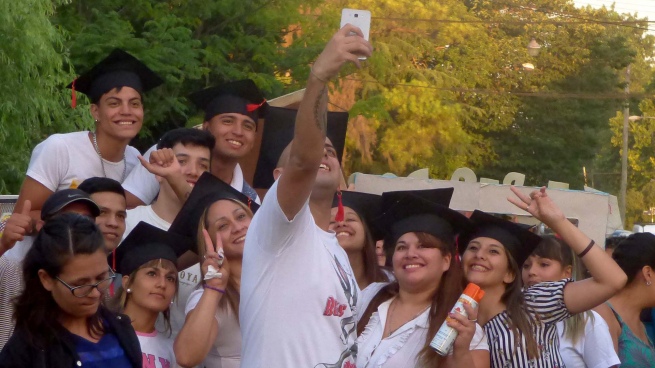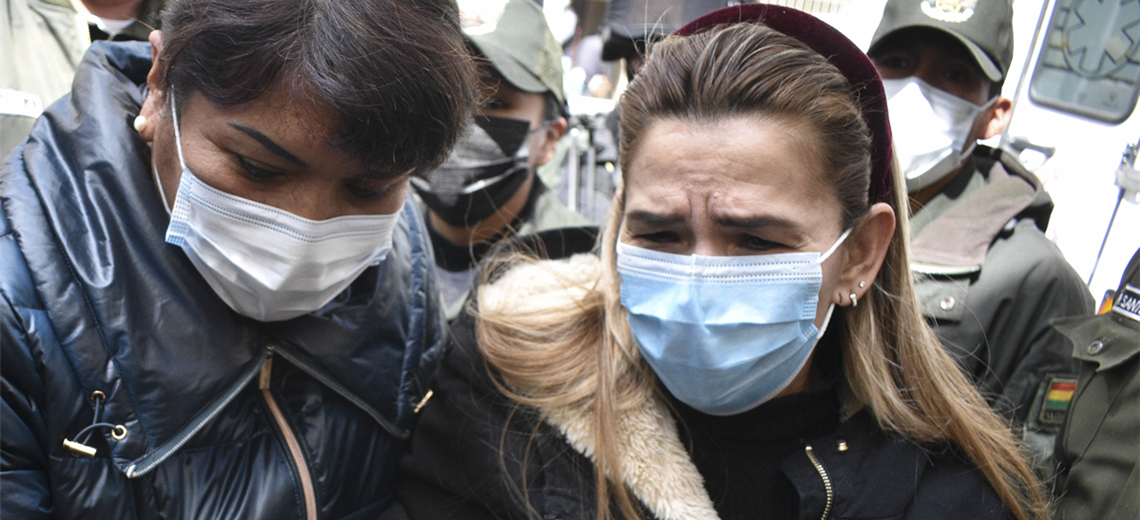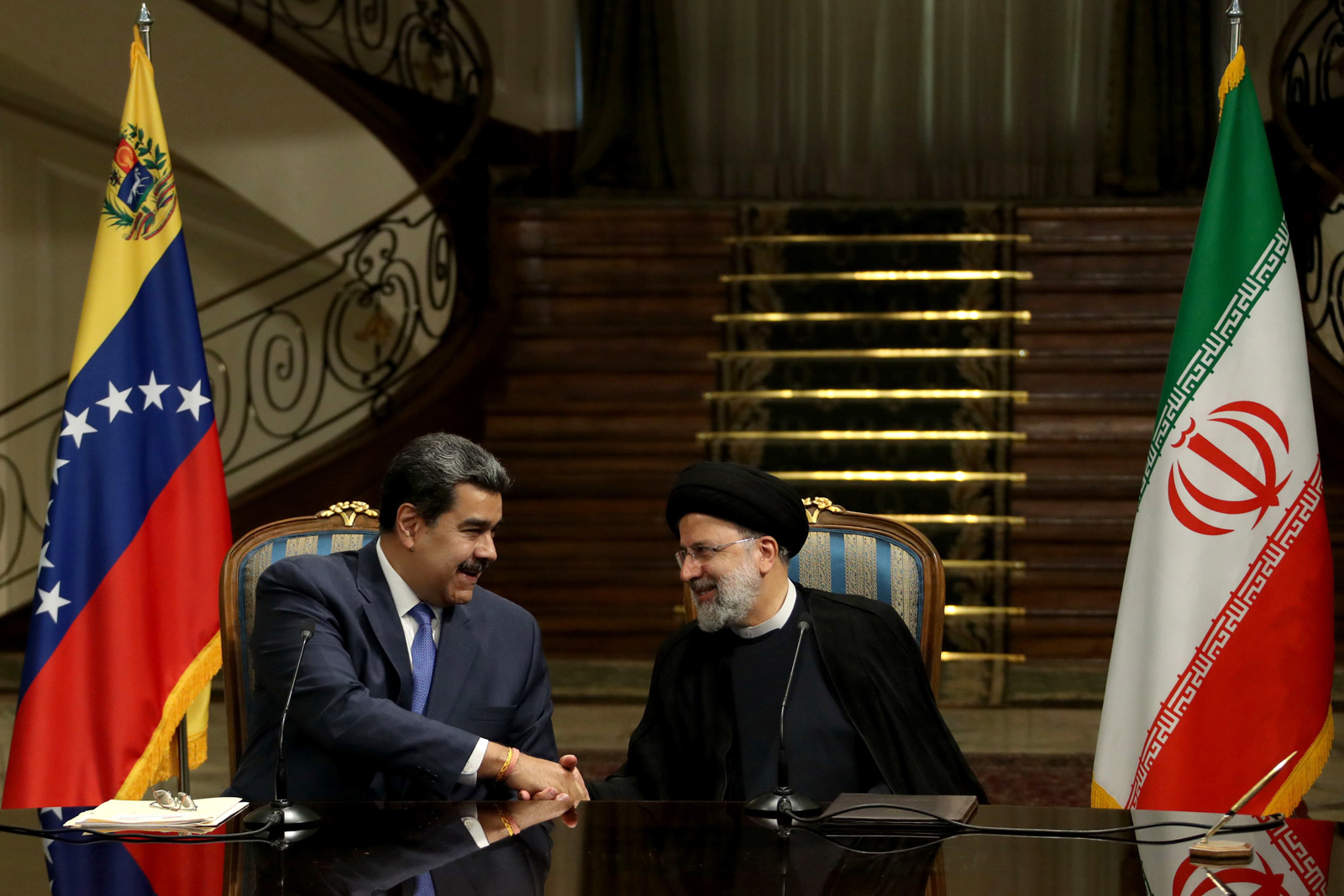Thanks to the fact that the writer and teacher Hebe Uhart decided months before her death to donate part of the Manuel Rojas Ibero-American Prize that she won in 2017, the Camino Andado School of Insurgent Territorywhich moved her with its inclusive project and in which she gave one of her legendary workshops, will have her own building that will bear her name in the Nuevo Alberdi neighborhood, where the presence of the State is meager but where the transforming power of literature reaches.
To support an educational project that involves teachers and more than one hundred students who want to finish high school and that already has 500 graduates, before his death in October 2018, Uhart decided to donate 30 thousand dollars, half of the money from the Manuel Rojas prize with which the National Council for Culture and the Arts of the Chilean government distinguished her for her career. With this money added to the contribution of the teachers who pledged part of their salaries, in the coming months school 3,188 “Escuela de Territorio Insurgente Camino Andado”, known as “La Etica” and 20 minutes from Rosario, will start operating in the Hebe Uhart building, named after the writer.
“Ethics” works with the dynamics of a popular high school and is located in the Nuevo Alberdi neighborhood, northwest of Rosario, in an area that combines built-up areas and rural areas.
In 2017, during a barbecue, the writer Pablo Ramos found out that the author of the narrator wanted to use the prize money in “something useful” and told him about the existence of “Ethics” in Santa Fe. Recognized as a great travel narrator, a theme to which she has focused especially in recent years, through the chronicles “Viajera chronica” (2011), “Seen and heard” (2012), “From Patagonia to Mexico” (2015), ” From here to there” (2016) and “Animals” (2017), he liked to know things first hand. In December 2017, she traveled to get in touch with that educational community. “She arrived for the end of the year celebration. It was very hot and we celebrated in a club. She came in and sat among the people, as if she were the mother of one of the boys. The first thing that struck us was that someone of that age, with that career and with so much to say, he would be in the listening spot. He wanted to meet us and that moved us a lot,” says Gabriela Alacid, a member of the Ciudad Futura space, the Rosario political party that generated the project in 2011.
“Ethics” works with the dynamics of a popular high school and is located in the Nuevo Alberdi neighborhood, northwest of Rosario, in an area that combines built-up areas and rural areas. In 2018, the ministry recognized the school and pays the salaries of its teachers, but the state presence in the neighborhood is meager: only a health room and the police station.
When the author found out that they were renting the building, she considered that the donation of this money could help them to buy a place of their own. And so it was: they managed to acquire a house that is a few meters away, they are remodeling it and they hope to inaugurate it in a few months along with a library that honors her mentor.
“Before the school model promoted by Finland became known, we used to do something similar. Starting from certain daily problems, we unfolded concepts. For example, we thought about health from a neighborhood health problem such as diabetes and, with that axis as a kick, we develop the classic contents”, says Alacid about how the secondary school works in which students from 17 to 60 years old learn, some who dropped out of school and want to go back and also many mothers who can study while a teacher makes their children upa or attend the kindergarten which works within the framework of the project. “We work with pedagogical pairs or trios and we collectively build knowledge. We aim to present young people with another proposal of school, work and friends, in a permanent competition with the narco”, explains the activist and warns that the great challenge is to teach and give an alternative to what the narco offers the kids.
“We aim to present young people with another proposal for school, work and friends, in a permanent competition with the narco”Gabriela Alacid, militant of the Ciudad Futura space
Although he did not hide it, Uhart did not plan to make his donation public: it seemed to him a kind of “self-advocacy” gesture. A few days ago, Damián Ríos, founder and editor at Blatt & Ríos, learned of the existence of the school through one of the authors of the catalog and believed that – once the project was completed – it was important that his gesture by the author be known , political and also literary. “With Hebe we were very good friends. She defined herself ideologically as ‘populist’, she told me with those words in 2010. Despite the fact that her career as a writer was solid and consolidated, she was very aware that she had been active in the 70s in the neighborhoods giving snacks and also as a teacher giving classes. But deep down, that kind of militancy seemed like a mistake. She was very interested in self-management and I think that the organization of that school challenged her and shocked her”, says Damián Ríos, founder and editor at Blatt & Ríos. “Her work is closely linked to the humble and the workers, a world that inspired her . In `Camilo ascends´, for example, the theme of progress can be traced”, analyzes Ríos about the link between biography and work.
The writer Eduardo Muslip – a student, a close friend of the author and committed to working on the edition of her posthumous texts – was aware of the idea of the author of the stories “Guiando la hiedra” and the book of chronicles “Visto y sonido “. “In her chronicles there is always an interest in the social, but far from a romantic ideal. He was very interested in the effort, the will to progress and develop. And the donation of his prize also does justice to his own story: he began his teaching career in rural schools in Moreno, he had a lot of interest and knowledge of what was happening in the popular sectors,” says Muslip.
On May 25, 2018, months before his death, Uhart traveled to Santa Fe and shared one of his workshops with students and teachers from the school. “The boys were delighted. One asked what it was to be a writer and she said: ‘Being a writer is being a refined charlatan,'” recalls Maximiliano Tomatis, a teacher of the subject Art, Politics and Subjectivity and one of those currently supporting the project. “She wrote everything she heard in a notebook and, in the same movement, she spoke. The scene was incredible,” he says.
The teachers of the school want the new headquarters to have a tempting library to facilitate access to reading for the hundred students and also to honor the gesture of the writer. For that, they started a campaign to receive donations from institutions, private individuals and publishers. Those who want to collaborate with the project can contact Ethics by mail: [email protected]
Tomatis vindicates the author’s decision but makes a distinction: “We believe that Hebe’s donation was not a charitable act, but a political one. And by political I don’t mean partisan, but rather that mark that can be read in her literature , especially in his chronicles”.









